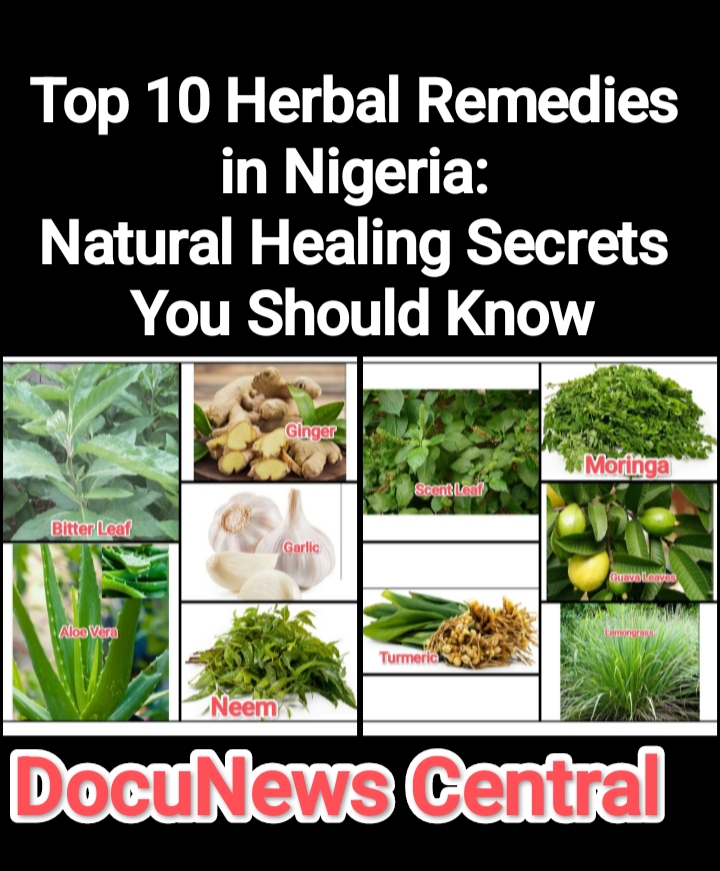

Top 10 Herbal Remedies in Nigeria
By DocuNews Central — Natural healing, preparation, and real user reports
Nigeria has a deep tradition of using plants for health. Families and communities have long relied on herbs to treat common illnesses, boost immunity, and support daily wellness. This article lists the top 10 herbal remedies commonly used across Nigeria, explains how to prepare them, how they are used, and shares common user reports.
1. Bitter Leaf (Vernonia amygdalina)
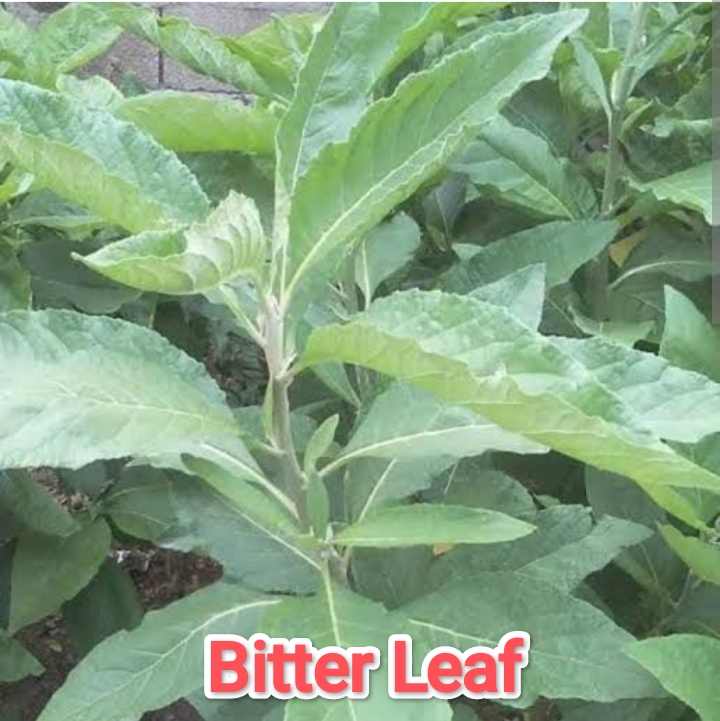
Preparation & Use:
- Wash the leaves well. Squeeze or blend and strain to make juice.
- Boil 10–15 leaves in 1 liter of water for 8–10 minutes, cool, strain, and drink as tea (half a glass daily).
- Also used as a vegetable in traditional soups such as bitter leaf soup.
Users report: Common reports include reduced fever, improved digestion, and better blood sugar control when used consistently.
2. Aloe Vera
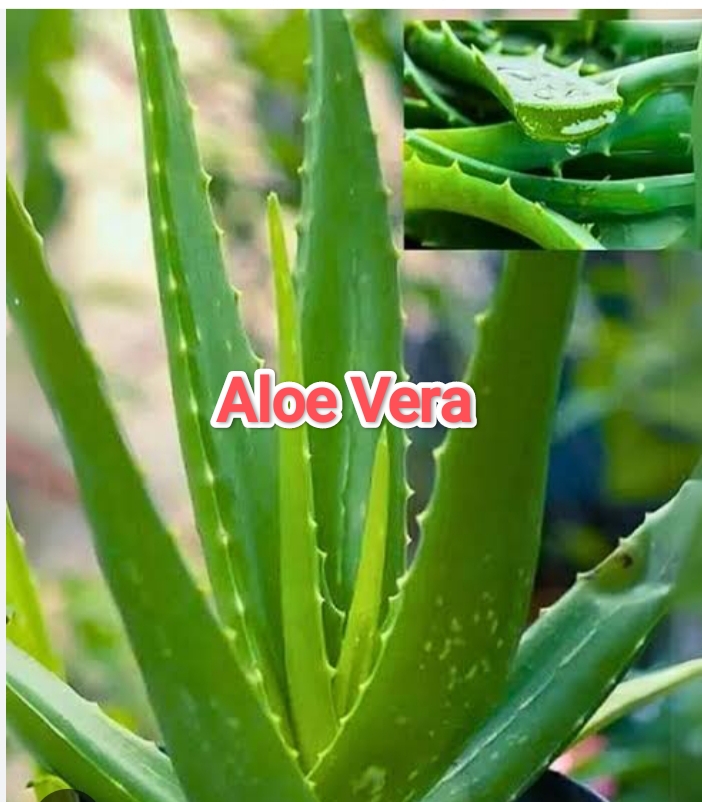
Preparation & Use:
- Cut a fresh leaf and scoop out the clear gel.
- Apply gel direct to burns, rashes, or acne. For internal use, dilute 1 teaspoon of gel in water or blend with honey (use in moderation).
Users report: Faster acne healing, smoother skin, and relief from minor burns. Some users report improved digestion.
3. Garlic (Allium sativum)
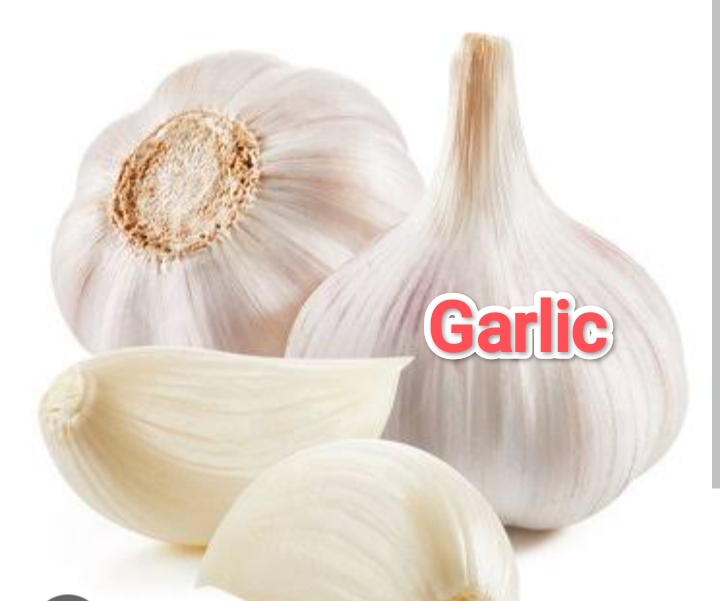
Preparation & Use:
- Peel and crush 1–3 cloves. Some swallow crushed garlic with water in the morning or add raw to foods.
- Soaked garlic in warm water is used as a tonic.
Users report: Lowered blood pressure and improved heart health with regular use. Others report reduced infections.
4. Neem (Dongoyaro)
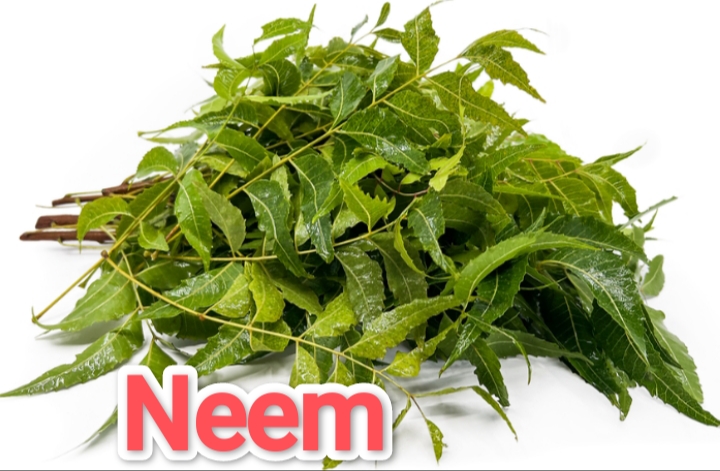
Preparation & Use:
- Boil several neem leaves in water for 10 minutes, cool and strain to drink as tea (small amounts).
- Apply ground leaf paste to rashes, or use neem water for bathing.
Users report: Widely used to help prevent malaria, treat skin rashes, and as a general detoxifier.
5. Scent Leaf (Ocimum gratissimum — Nchanwu/Efirin)

Preparation & Use:
- Wash leaves and boil for a few minutes. Drink as tea or add fresh leaves to soups and stews.
- Some blend with honey for a daily spoonful.
Users report: Relief from stomach pains, reduced bloating, and improved breath. Women report help with menstrual irregularities.
6. Turmeric

Preparation & Use:
- Peel and grind fresh root, or use ½–1 tsp turmeric powder in warm milk/tea daily.
- Apply paste (turmeric + water) to minor cuts and skin areas, or add powder to foods.
Users report: Reduced joint pain and swelling; some report clearer skin and improved digestion.
7. Moringa (Moringa oleifera)

Preparation & Use:
- Dry moringa leaves and grind to powder; brew as tea or add to smoothies and porridge.
- Fresh leaves can be cooked into soups for nursing mothers.
Users report: More energy, improved lactation for nursing mothers, and better overall vitality.
8. Ginger

Preparation & Use:
- Slice fresh ginger and boil for 8–10 minutes to make tea. Add honey and lemon if desired.
- Chewing small pieces helps nausea; topical ginger mixed with oil is used for joint pain.
Users report: Quick relief from sore throat, reduced nausea, and improved digestion.
9. Guava Leaves

Preparation & Use:
- Boil washed guava leaves for 8–10 minutes, cool and drink as tea (small cups).
- Use cooled leaf water as hair rinse to reduce dandruff.
Users report: Stopping childhood diarrhea overnight, improved oral health, and clearer skin when used regularly.
10. Lemongrass (Cymbopogon citratus)
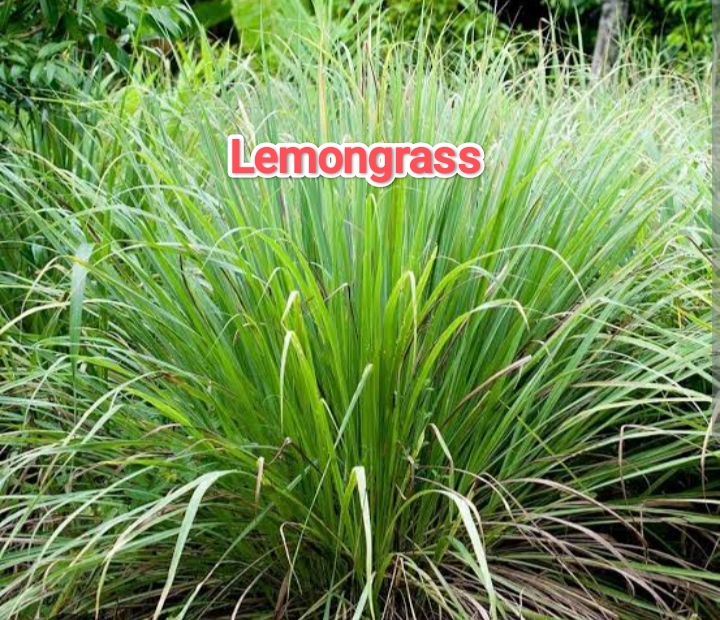
Preparation & Use:
- Crush fresh stalks and boil for 8–12 minutes. Strain and drink as tea.
- Combine with ginger for extra digestive and calming benefits.
Users report: Reduced anxiety, better sleep, and calmer stomachs after regular use.
Conclusion
Nigerians trust these herbal remedies for their affordability and effectiveness. While many users share positive reports, herbs should not replace professional medical care for serious conditions. Always consult a healthcare provider before using herbal remedies for chronic or severe health issues.
Quick Summary Table: Top 10 Herbal Remedies in Nigeria
| Herb | Main Benefit | Preparation & Use | User Feedback |
|---|---|---|---|
| Bitter Leaf | Malaria support, blood sugar control, digestion | Juice or boiled tea; also used in soups | Fever reduction, improved sugar control |
| Aloe Vera | Skin healing, digestion | Topical gel; 1 tsp gel in water for internal use | Acne cleared, burns soothed |
| Ginger | Cold, nausea, digestion | Boil slices for tea; chew fresh | Sore throat relief, nausea reduced |
| Garlic | Blood pressure, infections | Crush and eat raw or add to food | Improved blood pressure reports |
| Neem (Dongoyaro) | Malaria support, skin cleansing | Boil leaves for tea; paste for skin | Used for malaria prevention and rashes |
| Scent Leaf | Digestion, cough relief | Boil or use fresh in soups | Relief from stomach upset |
| Turmeric | Anti-inflammatory, liver support | Drink with milk or water; apply paste | Joint pain reduction |
| Moringa | Nutrition, energy, lactation support | Tea, powder in smoothies, cooked leaves | Increased energy and breast milk reported |
| Guava Leaves | Diarrhea control, oral health | Boil leaves for tea; use as rinse | Stops diarrhea; better oral health |
| Lemongrass | Stress relief, digestion | Boil fresh stalks for tea | Better sleep and calmness |
Published by DocuNews Central | Natural Health & Remedies









